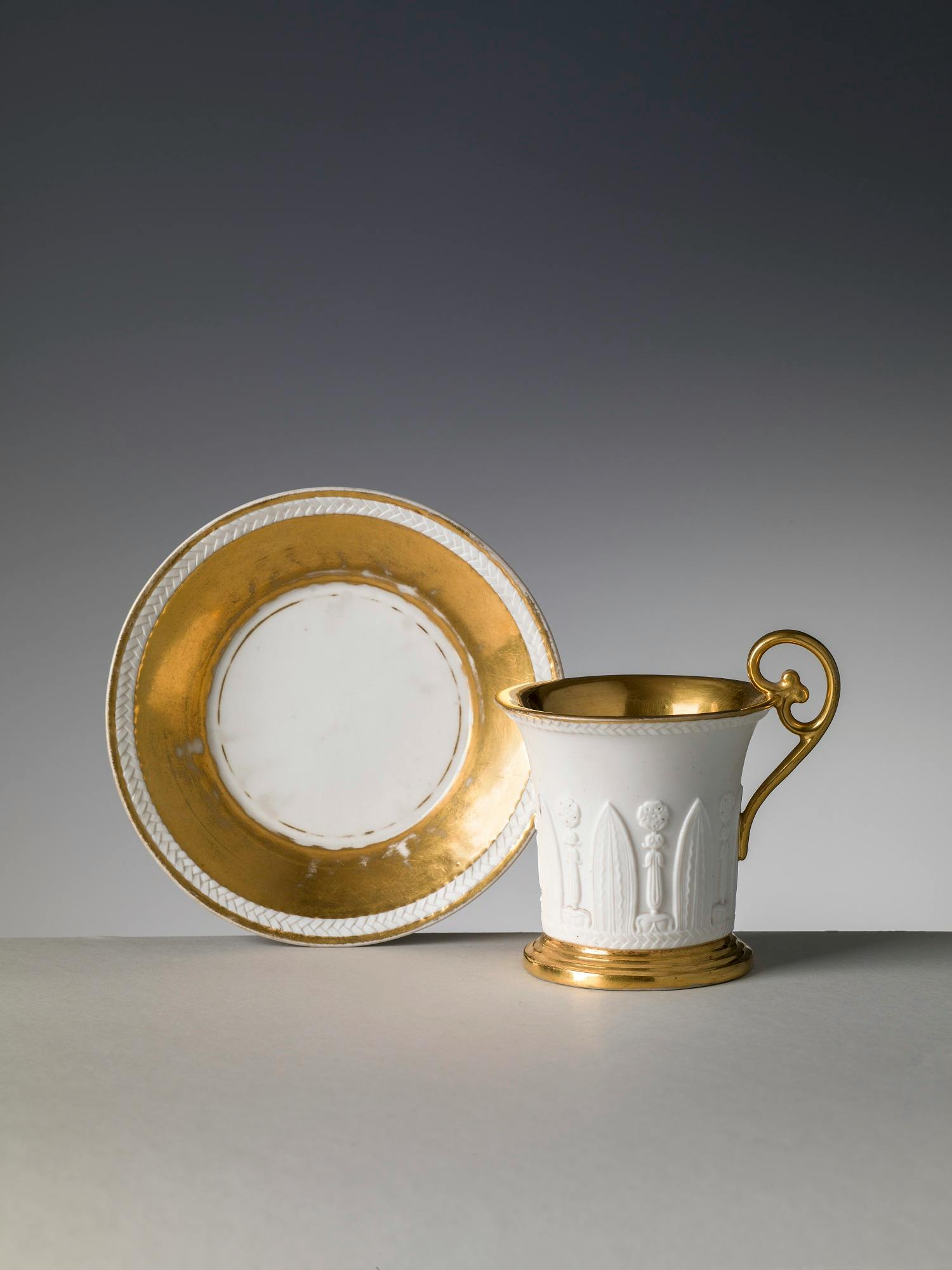Tea set
Dagoty Factory, Ginori Factory, Doccia (restocking)
In red, on the saucer: Manufacture / de S.M. l’Impératrice / P.L. Dagoty / A PARIS
Mark Six-pointed star (in gold, on the cups), Ginori Factory, Doccia
This set was created by the French factory founded at the end of the 18th century by three brothers at Boulevard Poissonnière in Paris. Pierre-Louis Dagoty who survived Isidore and Jean Baptiste Étienne continued the activity of the manufacture and together with a silver medal won in 1806 at the Paris Industrial Exhibition he obtained imperial protection, which allowed him to name the factory Manufacture de SM Impériale.
The virtuosity achieved in the production technique is evident in the treatment of the surfaces of our service, since two distinct porcelain processes were performed on the same product: biscuit and glazing. The first consists in cooking the specimen only once at 1,400°C, while the other involves an initial cooking process known as “biscuit”, followed by a second one that leads to the creation of a hard-paste porcelain product.
In the case of our set, the external surface has been treated with the biscuit process, whose opacity allows us to fully enjoy the sculptural decoration with lanceolate leaves and garlands supported by swans, connected with the representation of the same on the spout of the teapot and on the handle of the milk jug. For needs related to the introduction of liquids, which could have altered the whiteness of the porcelain, it was decided to glaze the internal surface, but also to cover it with a uniform gilding, accentuating the elegance and luxury of this very refined set, since this is an imperial manufacture.
The set was probably complemented by a sugar bowl with a lid, a bowl with claw-shaped feet and a tray. There is no information on its collecting history, but we can hypothesise, given the period of execution and the presence of the swan as the protagonist, that it can be traced back to Elisa Baciocchi, who came to live in the Royal Pitti Palace after her appointment as Grand Duchess of Tuscany in 1809.
